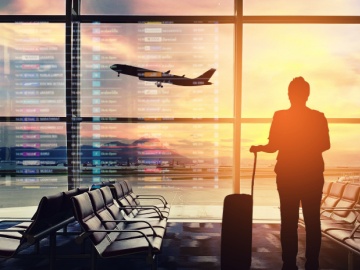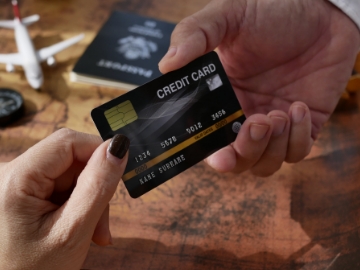
In the present time, everything is getting expensive: food we eat, energy we use, transportation that we require, housing, and health care. While all the sectors that play a significant role in our lives are incurring high demand, their prices have skyrocketed, affecting many factors.
This substantial increase in prices has indirectly affected the aviation sectors of numerous airlines, including JetBlue, by affecting the cost of transportation bags, which JetBlue increased, mainly due to increased wages, higher fuel costs, and the impact of the pandemic. So, in this blog, you will learn about JetBlue's baggage policy and a few tips that can help you avoid unnecessary charges for extra baggage.
JetBlue Airways Corporation
Founded in 1998 as NewAir, JetBlue is a major low-cost airline in the United States, headquartered in Brewster Building, Long Island City, Queens, New York City. The major hubs of the airline are Boston, Fort Lauderdale, New York-JFK, Orlando, and San Juan, and it has a fleet size of 290 Airbus and Embraer aircraft serving more than 114 destinations, most of its operation within the eastern United States, throughout the United States, northern and central Latin America, the Caribbean, and Europe. This airline's frequent-flyer program is called the TrueBlue, offering points to passengers traveling on the most fare types and to consumers who use JetBlue co-branded credit cards. JetBlue has a codeshare agreement with Oneworld, SkyTeam, and Star Alliance member airlines.
Baggage Policy of JetBlue
While traveling, every one of us ensures that all our bags are precisely the required size and weight according to the baggage policy. The baggage policy outlines the weight, size, and quantity of luggage a passenger can bring onboard, ensuring effective aircraft loading and passenger safety and preventing unexpected airport fees for any excessive baggage. So now let us understand JetBlue's baggage policy and the excess baggage charges the airline incurs for the passengers.
- JetBlue's baggage policy allows passengers one carry-on bag and one personal item or one carry-on item plus two checked bags.
- The carry-on bag and one personal item are allowed for free.
- The carry-on should not exceed 45 linear (22 x 14 x 9 in) , including the handles and wheels.
- The carry-on should fit under the seat in front of you.
- On A320 and E190 aircraft, personal items should not exceed 41 linear inches (18 x 15 x 8 in).
- The checked baggage is not included in the fare selected. Only Blue Plus Fare includes one free checked baggage.
- The maximum dimensions of checked baggage should be 62 inches (length + width + height), and the maximum weight should not exceed 50 lbs.
- Extra luggage as checked-in baggage will incur an extra fee: the first bag (Blue Basic, Blue, and Blue Extra fares) will cost $35, the second bag (Blue Basic, Blue, Blue Plus, and Blue Extra fares) will cost $45, and the third bag and additional bags will cost $150.
- Bags exceeding 80 linear inches will not be accepted as checked baggage.
The checked bag must meet the required size and weight restrictions brought into effect by the airline. The bags must not exceed 62 in total dimensions (length + width + height) and 50 lbs. Every checked bag that exceeds these limits will incur a fee. Extra charges are applied to bags that weigh between 51-99 lbs or measure 63-80 in, including handles and wheels.
Tips to Avoid Excessive Baggage Fees
While we travel, we ensure that the airfare covers everything, from the baggage and seat selection to travel insurance and many more. There are times when you deal with excessive baggage issues, which might make you adjust to more funds, which seem unnecessary. Therefore, here are a few key points to take care of to avoid extra charges on luggage; this applies to all the airlines and are general tips that will help you every time you pack your luggage.
- Ensure to follow the baggage policy of the airline you are traveling with.
- Always weigh your luggage at home and ensure it meets the required size and weight of the baggage policy.
- Invest in lightweight luggage that maximizes space without adding extra weight.
- Wear your heaviest and bulky clothing items before you leave home.
- While packing, try to roll clothes instead of folding them, this will save you more space.
- If you have extra luggage, make sure to purchase extra checked baggage space while booking tickets, by doing this the extra fee will be comparatively low when checking them in at the airport.
- If required purchase a vest with multiple pockets, it might be a helpful way to carry extra items without exceeding carry-on luggage limits.









